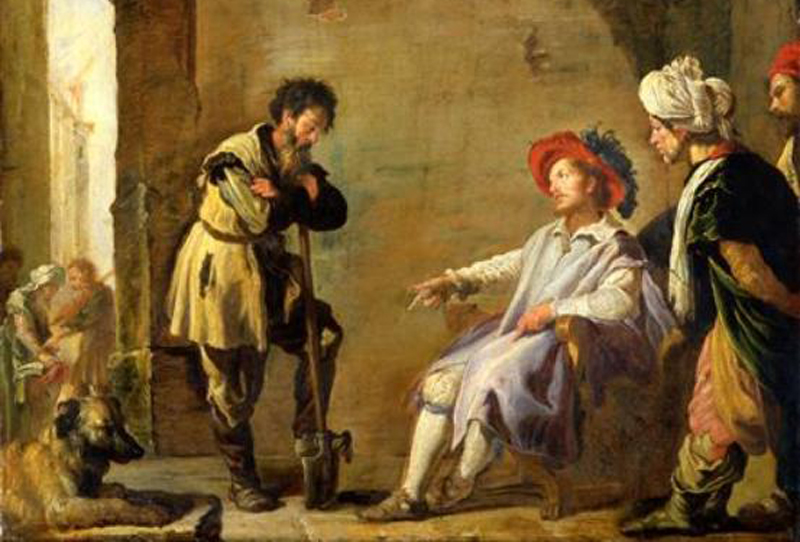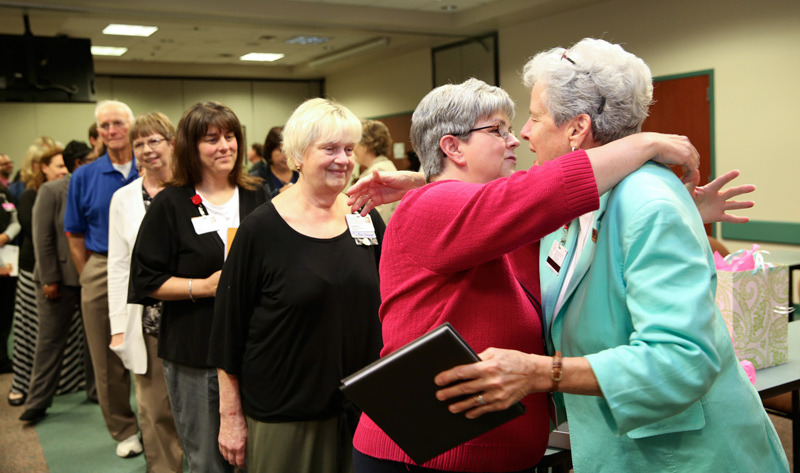
Jesus never expected a stipend for speaking or collected a consultant’s fee. He never made — or stipulated — a minimum wage. He did, however, appreciate work and understood what labor meant to farmers, shepherds, sailors, fishermen, homemakers, seamstresses, and cooks. Although the work world has changed dramatically, it is obvious that certain values regarding human work have remained constant since gospel times.
These values have been celebrated by Pope Leo XIII and Pope St. John Paul II in particular. Issues related to work and economic justice have been highlighted in the documents of Vatican II and in letters by our U.S. bishops.
I sometimes describe myself as a recovering workaholic. The graying of hair somehow brings on a greater appreciation of rest and sleep. That having been said, I find it very helpful to revisit Biblical and Church teachings regarding the good of work periodically.
At first, it seems that work is Adam’s curse. Toil and sweat come with the exit from Eden. So does disharmony between humans and creatures, pain in childbirth, family conflict, and death. As we read more of the Bible, we realize, however, that hard work is also a human good. It supports families, protects life and health, and offers a certain amount of pleasure when the fruits of labor are tangible and the job is well done. St. Paul (who was extreme in his energy and diligence) reminded the Corinthians that, even when success was not evident, “in the Lord, your labor is not in vain.”
Scripture underlies key points which Pope John Paul II made when he wrote the encyclical “On Human Work”. He observed that work is personal. It ought to engage, visibly benefit the worker and those whom he or she supports, and contribute to the common good. Workers are entitled to enjoy the material fruits of their labors. Rightly ordered work positively transforms the earth. Economic systems and practices are off balance if they emphasize production over persons. Sweatshops, child labor, human trafficking, and abusive business practices dehumanize. So too does the production of materials which wreak societal harm.
The worker is more important than the product or profit, and “the primacy of the human person over things,” must prevail, the sainted pontiff reminds us. Personal wealth and private property are fine, but they cannot be deemed more important than the well-being of the human family. Employers are morally obliged to offer healthful conditions, just wages, and time for family duties and rest. Workers owe care, commitment to quality, faithfulness to duty, and an honest day’s work for an honest day’s pay. Work’s purpose isn’t weekend getaways, vacations, and retirement.
John Paul II once worked in a quarry as well as in Church offices. He hammered home this reminder: “Uniting work with prayer, [let us] know the place that one’s work has not only in earthly progress but also in the development of the Kingdom of God.” That’s a benefit guaranteed to motivate us to get out of bed or launch from the La-Z-Boy.
Sister Pamela Smith, SSCM, is the Secretary for Education and Faith Formation at the Diocese of Charleston. Email her at psmith@catholic-doc.org.
Image: The Parable of the Labourers in the Vineyard; Domenico Fetti, c. 1618-1622




